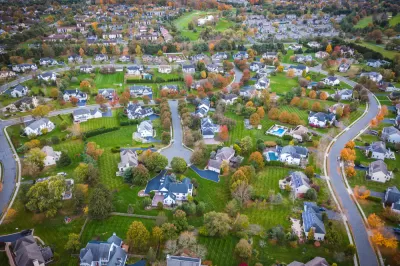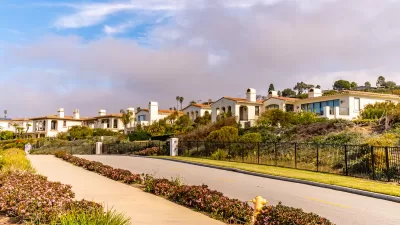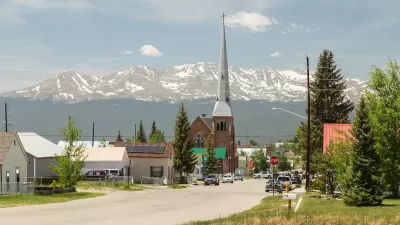Plaintiffs claim the new state law strips local control of growth, but affordable housing advocates say the lawsuit is just a delay tactic.

Eight New Jersey mayors filed a lawsuit earlier this month against a recently enacted state housing law, S50/A4, which standardized requirements for municipalities to build more housing. According to an article by Brianna Kudisch for NJ.com, the lawsuit claims the state law exceeds what is constitutionally required under state Supreme Court decisions that “outlawed exclusionary zoning practices and required all towns in New Jersey to provide their fair share of the region’s affordable housing” and questions the law’s exemption of 62 municipalities from having affordable housing obligations.
The article reports that an additional eight municipalities are expected to join the lawsuit later the month, but says affordable housing advocates are confident the suit has no legal standing and predict it will be thrown out of court. Adam Gordon, the executive director of the nonprofit Fair Share Housing Center, told NJ.com the lawsuit is a “smokescreen” meant to delay implementation of the law, put forth by “ultra-wealthy communities who have fought affordable housing for decades.”
The plaintiffs claim the law takes away their towns’ say in how they grow, but Gordon told NJ.com that the state law in question “gives towns tools — including new bonuses, financing options and credits — to build affordable housing in the way they want….Towns only lose their ability to be in control of the process when they refuse to find any place to create their fair share of affordable housing.”
According to the National Low Income Housing Coalition, New Jersey has a shortage of 214,000 units of affordable rental housing, and of the 25 percent of the state’s renter households that are extremely low income (making less than $33,290 annually), 74 percent are severely cost burdened.
FULL STORY: 9 N.J. towns sue the state over new affordable housing law

Trump Administration Could Effectively End Housing Voucher Program
Federal officials are eyeing major cuts to the Section 8 program that helps millions of low-income households pay rent.

Planetizen Federal Action Tracker
A weekly monitor of how Trump’s orders and actions are impacting planners and planning in America.

Ken Jennings Launches Transit Web Series
The Jeopardy champ wants you to ride public transit.

Crime Continues to Drop on Philly, San Francisco Transit Systems
SEPTA and BART both saw significant declines in violent crime in the first quarter of 2025.

How South LA Green Spaces Power Community Health and Hope
Green spaces like South L.A. Wetlands Park are helping South Los Angeles residents promote healthy lifestyles, build community, and advocate for improvements that reflect local needs in historically underserved neighborhoods.

Sacramento Plans ‘Quick-Build’ Road Safety Projects
The city wants to accelerate small-scale safety improvements that use low-cost equipment to make an impact at dangerous intersections.
Urban Design for Planners 1: Software Tools
This six-course series explores essential urban design concepts using open source software and equips planners with the tools they need to participate fully in the urban design process.
Planning for Universal Design
Learn the tools for implementing Universal Design in planning regulations.
Heyer Gruel & Associates PA
Ada County Highway District
Institute for Housing and Urban Development Studies (IHS)
City of Grandview
Harvard GSD Executive Education
Toledo-Lucas County Plan Commissions
Salt Lake City
NYU Wagner Graduate School of Public Service





























